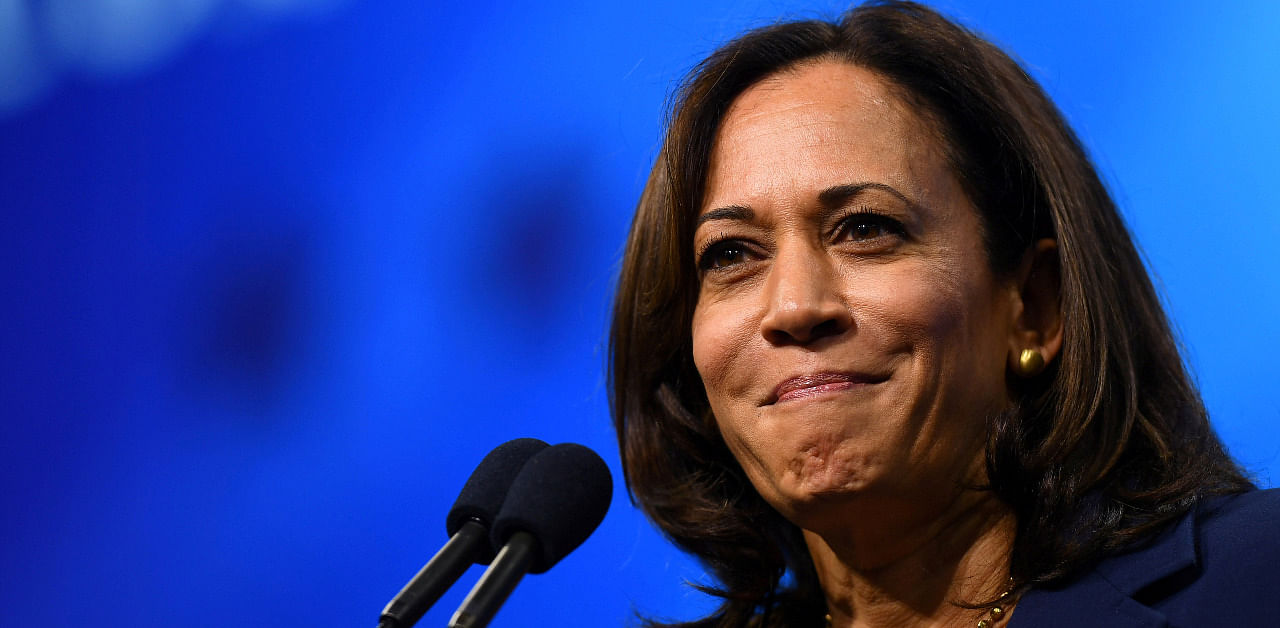
Indian-origin Senator Kamala Devi Harris scripted history when she became the first Black woman to be appointed as running mate by Democratic presidential nominee Joe Biden in the November presidential elections.
Biden on Tuesday picked Harris as his running mate, recognising the crucial role Black voters could play in his determined bid to defeat President Donald Trump in the US presidential election.
The 55-year-old California senator becomes just the third woman to be selected as the vice president on a major party ticket. Then-Alaska Governor Sarah Palin in 2008 and New York Representative Geraldine Ferraro in 1984 were the other two.
A searing critique-turned ally of her former rival Biden, Harris had her own presidential dreams, which she suspended by the end of 2019, saying she lacked the financial resources to continue her campaign. She is one of only three Asian Americans in the Senate and she's the first Indian-American ever to serve in the chamber.
Harris is known for many firsts. She has been a county district attorney; the district attorney for San Francisco - the first woman and first African-American and Indian-origin to be elected to the position.
She would be several firsts in her role as vice president also: the first woman, the first African-American woman, the first Indian-American and the first Asian-American.
Harris was born to two immigrant parents: a Black father and an Indian mother. Her father, Donald Harris, was from Jamaica, and her mother, Shyamala Gopalan, a cancer researcher and civil rights activist from Chennai. She, however, defines herself simply as ‘American’.
After her parents divorced, Harris was raised primarily by her Hindu single mother. She says that her mother adopted black culture and immersed her two daughters - Kamala and her younger sister Maya - in it. Harris grew up embracing her Indian culture, but living a proudly African American life. She often joined her mother on visits to India.
Also Read: Kamala Harris’s Indian connection - her grandfather who sparked the fire for public service
"My mother understood very well that she was raising two black daughters," she wrote in her autobiography The Truths We Hold. "She knew that her adopted homeland would see Maya and me as black girls and she was determined to make sure we would grow into confident, proud black women."
Harris was born in Oakland and grew up in Berkeley. She spent her high school years living in French-speaking Canada - her mother was teaching at McGill University in Montreal.
She then attended college in the US, spending four years at Howard University, which she has described as among the most formative experiences of her life.
After Howard, she went on to earn her law degree at the University of California, Hastings, and began her career in the Alameda County District Attorney's Office.
She became the top prosecutor for San Francisco in 2003, before being elected the first woman and the first black person to serve as California's attorney general in 2010, the top lawyer in America's most populous state.
In her nearly two terms in office as attorney general, Harris gained a reputation as one of the rising stars of the Democratic Party. She was elected as California's junior US senator in 2017.
"Harris knows the Black American experience. She knows the South Asian-American experience. She knows the immigrant experience. She knows the aspirational power of the American dream. She is the running mate for this moment,” wrote Neil Makhija, Executive Director of IMPACT, in an op-ed published by CNN recently.
"A Biden-Harris ticket would send a message that no door is closed to Indian-Americans in public life, at a time when we're beginning to flex our political muscle,” he wrote.
Around 1.3 million Indian-Americans are expected to vote in this year's election, with nearly 200,000 in battleground states like Pennsylvania and 125,000 in Michigan, according to the research firm CRW Strategy.
In the 2016 presidential election, 77 per cent of Indian Americans voted for Democrat candidate Hillary Clinton.
President Donald Trump has been seeking to win over Indian voters, praising Indian-Americans as business and technology leaders.
It is believed that Harris’ nomination will prevent Indian-American voters in key battleground states from moving away from the opposition Democratic Party towards Trump.
Makhija argued that Harris' vice-presidential candidacy would be historic and inspiring, not only for Black Americans, but for millions of voters of South Asian descent -- like him.